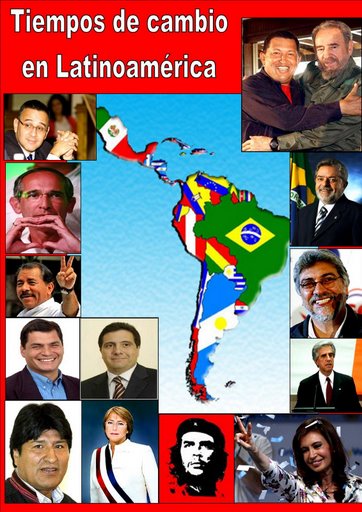
The Adiós Uribe coalition, a group that has been calling for the dismissal of former Colombian President Álvaro Uribe from his position as a Distinguished Scholar in the Practice of Global Leadership at Georgetown’s School of Foreign Service, protested once again in Red Square on Wednesday afternoon as Uribe led a guest lecture in the Bunn Intercultural Center.
Citing his poor human rights record, several activists and Georgetown professors congregated at a bench in front of the White Gravenor patio to express their opposition to his appointment to Georgetown faculty.
Wednesday’s rally in Red Square featured a dramatic interpretation of Professor Álvaro Uribe’s presidency.
The rally came a month after legal proceedings began against Uribe in two countries. In Colombia, he has been implicated in the federal intelligence agency’s wiretapping scandal, and in Spain, he has been accused of spying on human rights activists.
Banners and signs at the rally trumpeted these charges. One attendee held a sign read “Take Uribe to the ICC (International Criminal Court).”
“[Administrators] brought him here for one very simple reason—because he was a president, because he had his hands on power. That’s all that mattered in this discussion,” Mark Lance, director of Georgetown’s Peace Studies, said.
At the protest, Gerardo Cajamarca Alorcán, an organizer for the Colombian trade union SINALTRAINAL, spoke out against the human rights abuses of the Uribe administration, and links between members of Uribe’s party in Congress and paramilitary forces.
“We are here in the name of the dead to call for peace, justice, and reparations,” Cajamarca said to rousing applause. “For our dead—not one minute of silence, [but] an entire life of fighting.”
Cajamarca also presented Georgetown students with a folder containing an investigation carried out from 2006 to 2008 by the Tribunal Permanente de los Pueblos, a Colombian non-governmental organization that documented military abuses against the indigenous and Afro-Colombian communities in the nation.
Not everyone in Red Square was fervently opposed to Uribe’s presence on campus, though. Some counter-protestors chanted pro-Uribe slogans as the other protest began.
Federico Rivas (COL ’12), one of the counter-protestors, said that he recognized Uribe’s achievements, and thought it was important to acknowledge the enormous security challenges he confronted during his presidency.
Uribe’s second round of classes at Georgetown began on Monday, and he was invited to be a guest lecturer in several classes throughout the week.
Henry Thaler (COL ’14), who saw Uribe guest-lecture in Rev. Matthew Carnes’s Comparative Political Systems class, was impressed by the former president’s presence.
“I think its important to acknowledge that he’s a controversial figure and I certainly understand people’s objections, but I think it’s great that Georgetown can get somebody who played such a consequential role in international affairs to speak at the school,” Thaler said. “I think that outweighs the negatives.”
Carnes effectively shared his student’s mentality. Despite his reservations regarding Uribe’s human rights record, he thought that the ex-President’s presence can help spark meaningful discourse about Colombia and Latin America.
“Inside the classroom, we can have a level of discourse and a level of reflection that is unique to a university,” Carnes said. “It’s ironic and maybe tragic that I’ve had the opportunity to ask him more questions than human rights workers in his own country have been able to ask him, and to me it’s an educational opportunity. That’s something universities do particularly well, and I would defend their right to do that part.”
Some faculty members who shared Carnes’ reservations felt that Uribe never should have been appointed in the first case.
On Tuesday, Anthropology Professor Jeanne Rappaport and Associate Professor of Government Marc Chernick wrote a letter to President DeGioia, which criticized the lack of transparency surrounding the hiring. Additionally, Rappaport and Chernick asked that, “[Uribe’s] appointment be quietly terminated and that former President Uribe not be invited to return to the campus after his current visit ends on November 12th.”
Eight Georgetown faculty members and 150 professors from other universities have signed a document calling for Uribe’s dismissal.
Georgetown Professor Maurice Jackson, who signed the document, said that the appointment was not vetted adequately and that it ultimately reflects poorly on the University.
“It’s a condemnation of the people of Colombia to have such people speaking,” Jackson said. “You don’t gain prestige by doing something like this—you lose prestige.”
Jackson said the faculty could complain as much as they want, but that it was ultimately up to the students to put enough pressure on the University to reconsider the appointment.

No hay comentarios:
Publicar un comentario